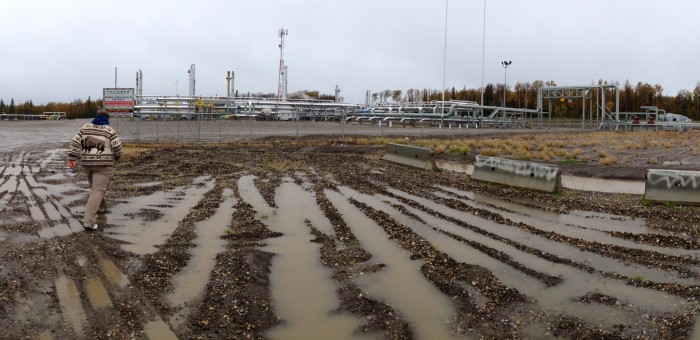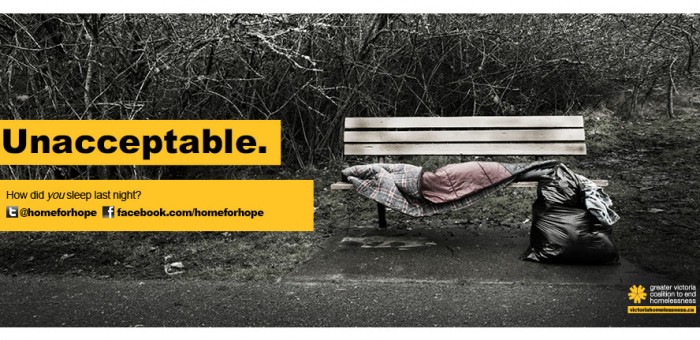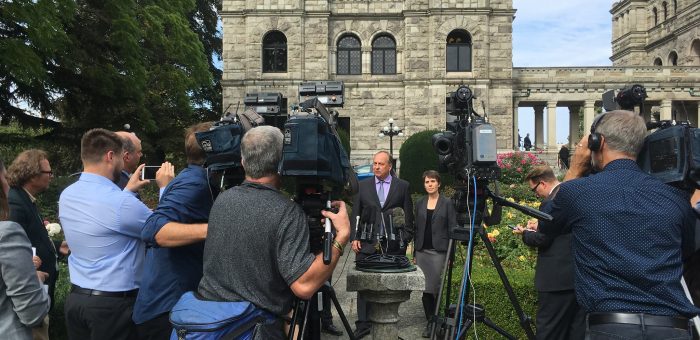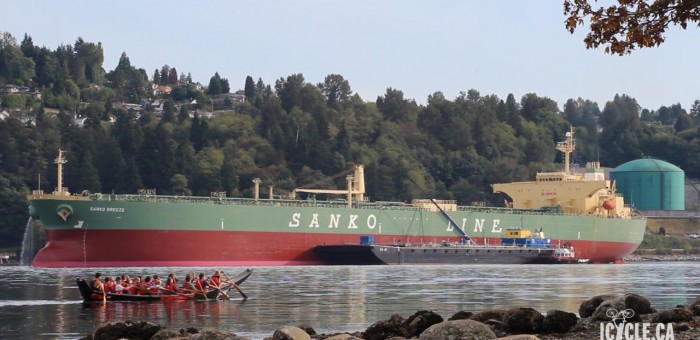Probing the rationale behind recent changes to the Petroleum and Natural Gas Act
Yesterday during budget estimates for the Ministry of Energy, Mines & Petroleum Resources I asked the Minister a couple of questions concerning very recent changes to the Petroleum and Natural Gas Act. These new changes preclude detailed information about royalty revenues being publicly disclosed, and grant the Oil and Gas commission increased regulatory power.
This line of questioning followed the good news that Shirley Bond (MLA Prince George-Valemont) and I received about the proposed Borealis geothermal project near Valemont, BC. The Oil and Gas Commission recently approved their drilling permits and, to quote the Minister:
“The good news is that the ministry is already working with Borealis in terms of helping them navigate all the different funding opportunities, particularly from the federal government as well. “
Below I reproduce the video and text of the exchange.
Video of Exchange
Text of Exchange
A. Weaver: I would like follow the comments of the member for Prince George–Valemount and echo her thanks to the minister for this good news about Borealis. I, too, am thrilled with the news, and it’s great to see B.C. champion this demonstration project. It’s good for B.C. It’s good for Valemount. It’s good for all of us in this room, and I think it’s a great step forward.
I have a number of questions. I’ve given most of them to the minister in advance, because they were rather lengthy, and I thought rather than scrambling on the floor, I could give them time to prepare.
I have two that I wanted to ask first that I had not…. They just came to my attention very recently. They came to my attention when a member of the general public sought information that used to be available through a freedom of information request, and that was recently changed in the statutory miscellaneous stats law that was passed under this government.
Under section 122.1 of the Petroleum and Natural Gas Act now, information about royalty revenues must not be disclosed. It essentially means that British Columbians are denied the right to know about royalty payments on a resource that belongs to the citizens of this province. This is a very new addition.
My question to the minister: is she comfortable with this, given the stark contrast to the forest industry, in which the volume of timber harvested by specific companies is publicly available information? What is the justification for this level of secrecy around a publicly owned resource, exclusively for natural gas. Now you nor I, our friends here — nobody — can know which company gets how much natural gas out of the ground. Very unusual given that it only applies to the natural gas sector.
Hon. M. Mungall: The overall amount of royalties that are paid by the industry is aggregated and then made public through Public Accounts, but I believe the member opposite was talking about the specific amount of royalties per company and that not being shared.
My understanding is that this is very similar, actually, with mining in that Ministry of Finance has determined that a best practice is to treat royalties, in terms of their privacy, the same way as you would treat individual income tax. We want to protect that privacy information for industry in the same way that we would protect privacy information for individuals.
What that means is that we would know the information for the industry as a whole but not for individual companies.
A. Weaver: Is it then publicly available — the amount of a resource that is being extracted by a particular company? As of a few months ago, if a FOI was put forward, a member of the public could find out how much natural gas — a British Columbian owned resource — was extracted by a British Columbian natural gas company. Now they would be told that they’re subject to the section 122 and that information is not available. Is that correct?
Hon. M. Mungall: If the individual that the member has been speaking to is concerned about the actual volumes of gas tied to any well at all in British Columbia and wants to know how much volume of gas is being extracted for that one well, or for a group of wells or so on, that information is actually publicly available on the OGC, the Oil and Gas Commission’s, website. That is readily available. They don’t have to file an FOI, but it’s that financial component that has been now retained as private information.
A. Weaver: Thanks to the minister for the answer.
My second question in this area is: the board of the Oil and Gas Commission has the power to make regulations under the Oil and Gas Activities Act, and it has, in fact, exercised this power to make regulations related to consultation and notification requirements, geophysical activities, drilling and production activities, pipeline and liquefied natural gas facilities, and fees and levies and securities.
My question is this. Does the minister feel that it’s appropriate for a body, which is both a promoter and a regulator of the oil and gas industry, to have the ability to create regulations without cabinet or legislative approval?
Hon. M. Mungall: The member’s question, specifically, was if we, as a government, see it as permissible for an entity to be both regulator and promoter of an industry.
The answer to that is that the OGC is a regulator, full stop. That is very clearly laid out in section 4 of the act that governs the Oil and Gas Commission. If the member likes, I can read it out as a whole. But important to note is looking at….
The Chair: I’ll have to interject. The standing orders do not permit the use of a device.
Hon. M. Mungall: I’m sorry, Chair. My understanding is there was a ruling made in the last parliament that actually allowed members to read from an electronic device.
Interjection.
Hon. M. Mungall: Yeah, not during question period, but otherwise, at other times, I’ve seen members do that. But maybe the member doesn’t need me to read it.
The Chair: Pardon me, Minister. We’ll consult with the Clerk in the meantime.
Hon. M. Mungall: I’ll leave my answer at that, though. The member is able to use the Internet, so I’m sure he will.
When will government increase the $375 shelter allowance for income assistance?
Today in the Legislature I rose during question period to ask the Minister of Social Development and Poverty Reduction why the government had yet to increase the $375 shelter allowance for income assistance. This rate hasn’t increased in a decade yet housing costs have risen dramatically.
Below I reproduce the video and text of our exchange.
Video of Exchange
Question
A. Weaver: In September, government raised social assistance rates by $100 per month. Not only, of course, do I support the move, but I also commend government for implementing this increase. Rates had been frozen for a decade, leaving people worse off year after year, as their buying power eroded with inflation and the affordability crisis exploded.
Nevertheless, while support payments have gone up, the shelter allowances have remained the same, at only $375 a month. This is far, far below what it actually costs to find shelter.
For example, the organization Raise the Rates found that in Vancouver, even a single-room-occupancy hotel, known as an SRO — the cheapest form of housing available — cost $548 a month. And a number of advocates and journalists have documented the appalling and unsafe living conditions that people are forced to endure in many SROs in Vancouver.
My question to the Minister of Social Development and Poverty Reduction is this: do you agree that $375 does not come close to reflecting the true cost of finding shelter in B.C., let alone shelter that is safe and secure?
Answer
Hon. S. Simpson: I thank the Leader of the Third Party, though I did lose the bet on getting a question-free session.
I agree with the Leader of the Third Party. Persons on income assistance, persons with disabilities and hundreds of thousands of other people who are living vulnerable and living poor are struggling immensely in this province today. I’m proud of the $100 increase that we put in place, the first increase in over a decade for people on income assistance.
As I said, there are significant numbers of working poor in this province who are struggling as well, and I’m excited that at the end of this week, we’re going to have a $1.30 increase in the minimum wage, the first step on the way to a $15.20 minimum wage.
On the issue of housing, the member is correct: it is challenging, as we move forward, but we have many steps that we’re taking. I’m excited about the biggest investment in housing in the history of British Columbia in the February budget. I’m excited about the increases around rental assistance programs and SAFER grants. I’m really excited about the 2,000 modular units that are out there being built today, that are being occupied today, that are helping the most vulnerable people in the province, people living homeless, and giving them a place to live. That’s progress, and that’s leadership.
The last thing I would say is: we’ll bring in the poverty reduction plan, and yes, we’re going to deal with housing.
Supplementary Question
A. Weaver: There certainly was a lot of pent-up answer waiting for a question there.
A substantial gap remains between social assistance rates and what is required to maintain a dignified standard of living. That’s why during the election the B.C. Greens committed to transitioning people to livable incomes, starting with an increase in social assistance rates by 50 percent above 2017 levels by 2020.
The previous critic on this file said last year: “Every year I ask the minister how on earth they come up with $375 as the shelter allowance for income assistance, because there’s nowhere in B.C. that’s available for $375.” I would agree with her, but unfortunately, this remains true today, and the average rent of a bachelor apartment in Vancouver is over $1,000 a month.
My question, again, to the Minister of Social Development and Poverty Reduction is this: will you increase the shelter allowance as part of the forthcoming poverty reduction program and strategy?
Answer
Hon. S. Simpson: We have 557,000 people living in poverty in this province. We’ve had the highest rates of poverty for over a decade and a half, pretty much every year, and certainly the highest rates around child poverty.
We have challenges. We need to deal with the affordability questions that the member’s talking about. We need to create opportunities for people to break the cycle of poverty. We need to deal with the issues of social isolation and social inclusion for people struggling in poverty, whether they be the 100,000 children living in poverty, the Indigenous and the disabled who are living in poverty.
We’re going to do that. We’re going to bring legislation this fall that will legislate the poverty reduction plan, and British Columbia will no longer be the only province in this country without a poverty plan. We will end that this fall. We will bring the plan shortly after, and we will address those issues of improving the lives of people in this province, including on the housing issue.
B.C. Green Caucus statement on Attorney General’s proportional representation recommendations
Today the Attorney General released his long awaited report containing recommendations for the upcoming fall referendum on proportional representation. Our spokesperson on proportional representation, Sonia Furstenau, issued a media release (reproduced below) in response to the report.
Media Release
B.C. Green Caucus statement on Attorney General’s proportional representation recommendations
For immediate release
May 30, 2018
VICTORIA, B.C. – Sonia Furstenau, B.C. Green Party spokesperson for electoral reform, responded to the Attorney General’s report and recommendations on B.C.’s upcoming proportional representation referendum.
“I look forward to the Attorney General’s recommendations being finalized by cabinet. It’s time to get started on this important conversation about the future of our democracy,” said Furstenau.
“I am pleased that the AG took advice from a wide range of voices who participated in this consultation process and that his recommendations reflect the concerns and desires of the whole province. Going forward is that voters receive good quality, factual information and a healthy, vibrant debate about their electoral process.
“The B.C. Greens support proportional representation because it leads to more democratic outcomes. Too many people feel they have to vote strategically against whichever party they don’t want. Proportional representation gives voters the chance to vote for what they actually want, so they can vote out of hope, not fear.
“Proportional representation also requires parties to work together to put policy ahead of politics. Under First Past the Post in B.C., parties have received 100% of the power with as little as 39% of the vote and do not have to consult or collaborate with anyone. This leaves voters feeling like their government does not represent their interests and puts political parties into an adversarial, zero-sum situation where they become more focused on tearing each other down than working on solutions to the challenges and opportunities we all face.”
-30-
Media contact
Jillian Oliver, Press Secretary
+1 778-650-0597 | jillian.oliver@leg.bc.ca
One year later, CASA continues to deliver strong, stable government that puts people first
Today the BC Green and BC NDP caucuses celebrated the one year anniversary of the signing of our historic Confidence and Supply Agreement.
The Premier and I took the opportunity to celebrate the event at the offices of Alacrity Foundation in Victoria. This was a fitting venue since Alacrity represents a stellar example of innovation in the new economy.
Alacrity has helped bring over $225 million to B.C.’s technology ecosystem through its investor readiness program and on April 19, 2018, the Province announced that it was investing more than $711,000 over the next three years in the Alacrity Foundation of B.C.’s Cleantech Scale-Up program.
Below I reproduce the brief remarks I gave at the event as well as our joint press release.
My remarks
I am delighted to be here to celebrate the one year anniversary of the announcement that we had reached a Confidence and Supply Agreement with the BC NDP.
The 2017 election was historic for our Party. We doubled our popular vote count and tripled our seat count.
When the results came in as a minority government, we felt an enormous weight on our shoulders. We took our decision very seriously.
In the end, we decided BC needed a change. It was clear that most British Columbians wanted things to be done differently.
There was a clear desire for bolder, forward-looking policies on a range of important issues:
affordability;
environmental protection;
investments like child care and public education that will give our children the best possible future.
CASA is the result of two distinct parties coming together around shared values.
Ultimately we want the same thing:
to improve the health and wellbeing of British Columbians;
to make government more responsive to the challenges and opportunities they face in their everyday lives;
and to set our province up for success.
There have been ups and downs in the first year, but like any relationship our Agreement has required us to work through our issues and come together to find solutions that we can both support.
This is a special opportunity – under majority governments, a party can get 100% of the power with as little as 39% of the vote and push through its agenda without having to consult or collaborate with any other parties.
This has often left British Columbians feeling disconnected and like their government is not listening to their concerns. In just the first year since signing our agreement, we have worked together to:
ban big money;
reform the lobbying industry;
make historic investments in childcare and public education;
advance key elements of the BC Greens’ economic vision for the province.
And we’re just getting started.
Right now, I am hard at work with Minister Heyman to develop a climate plan that puts a bold vision for BC’s economy centred around innovation at its core.
We have a unique opportunity to make BC a leader again in climate action.
While climate change poses significant risks and challenges, there are opportunities to be had as the world transitions to the low carbon economy.
But the benefits will only flow to those who are leaders – not the last adopters.
BC was once a leader in climate action, providing an example to the world that a strong economy and bold climate action are perfectly compatible.
I am looking forward to unveiling our plan to make BC a leader once again.
There are challenges that lie ahead, but I am deeply encouraged by our ability to come together to work through our differences.
John and I both know that there is more at stake than the future of our two parties – we are united in our love of this province and we want to set it up for the best possible future.
Our caucus remains committed to doing everything we can to work collaboratively to advance more solutions so that we can deliver on our shared commitments to the people of BC
Thank you.
Joint Media Release
| For Immediate Release 2018PREM0081-001062 May 29, 2018 |
Office of the Premier Office of the Leader of the B.C. Greens |
One year later, CASA continues to deliver strong, stable government that puts people first
|
|
| VICTORIA – Premier John Horgan and B.C. Green Caucus Leader, Andrew Weaver, marked the one-year anniversary of the Confidence and Supply Agreement (CASA) at the Alacrity Foundation in Victoria.
The leaders highlighted co-operation to put people first, and investment in clean tech, innovation and a resilient economy that creates good jobs for people in B.C. — now and into the future. “When we agreed to CASA, we agreed to make democracy work for people and focus on solutions to the challenges facing British Columbians,” said Premier Horgan. “By working together, we’ve accomplished a lot to make life more affordable, improve the services people count on, and build a strong, sustainable economy that works for people. And we will keep working together, every day, to make life better for people in B.C.” The Province recently announced support for the Alacrity Foundation to help clean tech companies expand. The support for Alacrity is part of the progress made on CASA commitments to advance innovation and technology, and the collaborative work on the climate action strategy that continues. “Over the last year, we’ve shown the people of B.C. that co-operative government can lead to better, evidence-based policies that will set our province up for a bright future,” said Weaver. “Core elements of our economic platform are part of CASA. With the establishment of the Emerging Economy Task Force and the appointment of B.C.’s first innovation commissioner, the province will be better positioned to adapt and prosper in the changing economy of the 21st century.” CASA commitments on climate action were emphasized by both leaders, as they stressed the importance of decisive action and ongoing work to ensure B.C. is a climate leader. “Climate change affects everyone, and our shared future depends on making B.C. a climate leader with a strong economy that works better for people and the environment,” said Premier Horgan. “The previous government stalled climate action and failed to meet targets. We are working collaboratively towards a credible and effective climate strategy that creates opportunities for people. I’m excited about what we can achieve together.” The Government of British Columbia recently introduced legislation to update the Province’s greenhouse gas reduction targets, setting the stage for a renewed climate action strategy to be released in the fall. “There is much more to be done, but I look forward to working together to make B.C. a leader in climate action once again,” said Weaver. “We have an incredible opportunity to build a thriving economy centred around innovation, and keep our commitment to younger generations. A climate plan that is a collaborative effort by two distinct parties is a unique chance to put people ahead of politics, to think beyond the typical electoral cycle and set our province up for the brightest possible future. British Columbia has so much to offer and we can and shall be a leader in the new economy.” In addition to growing B.C.’s tech economy, supporting innovation and making B.C. a leader in climate action, CASA lists child care, team-based health care and housing as priorities. Quick Facts:
Learn more: To learn more about the CASA Secretariat and agreement, visit: https://www2.gov.bc.ca/gov/content/governments/organizational-structure/ministries-organizations/central-government-agencies/government-communications/casa To learn more about Alacrity’s BC Cleantech Scale-Up program, visit: https://www.alacritycanada.com/programs/ |
|
Contacts: |
|
| Jen Holmwood Deputy Communications Director Office of the Premier 250 818-4881 |
Jillian Oliver Press Secretary B.C. Greens 778 650-0597 |
Reacting to Federal government decision to buy Trans Mountain
In what can only be described as a desperate attempt to save face, the Federal Government announced today that it would use taxpayer money to buy Trans Mountain’s Canadian assets which include the existing pipeline from Alberta to the Burnaby refinery.
Below I reproduced the media statement that we released in response to this action.
Media Statement
Weaver: Federal government decision to buy Trans Mountain a betrayal
For immediate release
May 29, 2018
VICTORIA, B.C. – Andrew Weaver, leader of the B.C. Green Party, issued the following statement in response to the federal government’s decision to buy the Trans Mountain Pipeline.
“This is a betrayal by a government who ran on a hopeful vision for a better future,” said Weaver.
“A government that promised to end fossil fuel subsidies and to champion the clean economy should not be spending billions of dollars of taxpayer money to buy out a fossil fuel expansion project. We should be investing in growth industries that are clearly where the world is heading. Investing in this pipeline is like investing in the horse and buggy industry at the advent of the car.
“This is a deeply troubling decision on many levels. Canada stands to sacrifice its international reputation, irreplaceable iconic species like the Southern resident Killer Whales, and its commitments to meet its Paris Climate targets and to reconcile with Indigenous people – all while putting enormous risk on Canadian taxpayers.
“It is clear that the world is transitioning away from fossil fuels. The cost of renewable energy continues to fall – solar and wind are already cheaper than coal in many jurisdictions. Last week, a report by Aurora Energy Research projected the adoption of electric vehicles could wipe out $19 trillion in oil revenue. You don’t build infrastructure like this for the next few years – this is built to last for the next 40-50. This is not the infrastructure we need in 10 years and certainly not what we need in 40.”
-30-
Media contact
Jillian Oliver, Press Secretary
+1 778-650-0597 | jillian.oliver@leg.bc.ca








